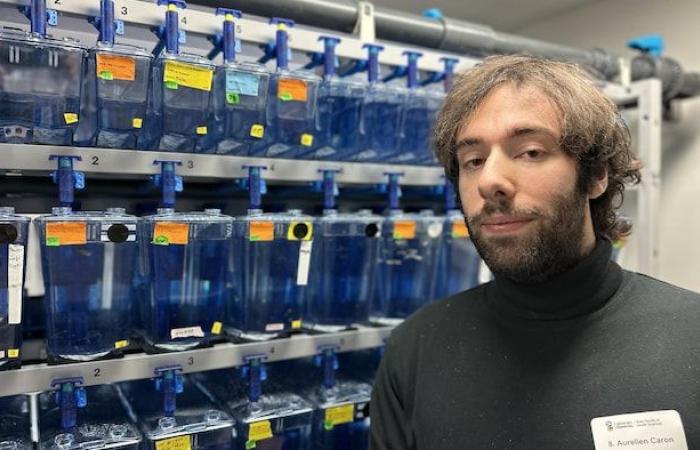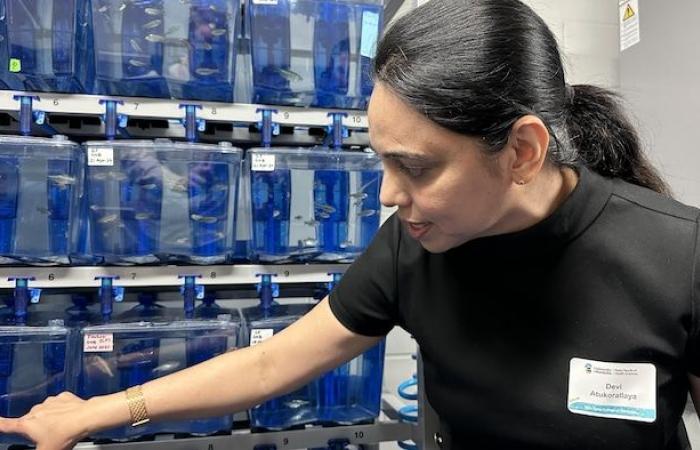A tropical fish research center opens at the University of Manitoba, thanks to a $2.5 million investment. Studies will be carried out within this center which is at the cutting edge of technology.
The studies will focus in particular on the capabilities of zebrafish and blind tetras, with the aim of better treating human diseases such as cancer or diabetes and the treatment of brain or spinal cord lesions. The University of Manitoba thus becomes a major player in research on small laboratory fish.
In total, 2000 zebrafish and 250 blind tetras will be studied using new equipment.
Open in full screen mode
Aurélien Caron, a fourth-year doctoral student, studies brain regeneration in these fish.
Photo: - / Corentin Mittet-Magnan
The fish were placed in new tanks which are permanently connected to control the temperature and water quality.
We have a better capacity to accommodate fish and process this data
explains Aurélien Caron, a fourth-year doctoral student who studies brain regeneration in these fish.
Tropical fish to heal humans
The results of this research could be used to treat many diseases.
Benjamin Lindsey, assistant professor of human anatomy and cellular science at Max-Rady College of Medicine, studies brain and spinal cord injuries.
We are trying to determine what factors allow these fish to repair themselves.
he explains. One advantage is that these fish are more profitable for research than small mammals like mice.
There is approximately 75% similarity between the genomes of zebrafish and those of mammals and humans
he adds.
The hope is to one day be able to use it to improve human health and help people with, for example, neurodegenerative diseases or Alzheimer’s disease.
In cases of brain injury, these fish are often able to create new neurons. The fish can then live a normal life again
explains Aurélien Caron.
Open in full screen mode
Devi Atukorallaya is an associate professor of oral biology at the Gerald Niznick College of Dentistry.
Photo: - / Corentin Mittet-Magnan
Devi Atukorallaya, associate professor of oral biology at Gerald Niznic College of Dentistry, says this process can take a long time.
If we can confirm the therapeutic potential of these fish, then we can move towards larger mammals such as mice.
she explains. If the research results prove positive, scientists will then be able to apply them to humans.
Devi Atukorallaya focuses on another facet of these fish, namely their ability to regrow their teeth. She believes that if scientists can understand how this ability works genetically, it could help dentists regenerate their patients’ teeth.







